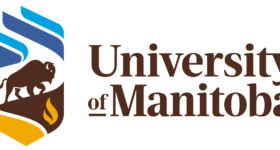
AUTHOR(S)
University of Manitoba | Diana Sanchez-Ramirez, Heather Long, Stephanie Mowat, Casey Hein
Obesity Intervention for Front-line Healthcare Providers
Faculty developed and implemented a full-day interprofessional education event to educate a variety of healthcare providers about the issues and challenges of obesity intervention. The program was made available provincially through video conferencing to promote the integration of simulation and small-group learning.
OVERVIEW
Evidence has shown that lectures and symposia have a positive impact on physician knowledge and competence. In contrast, interactive CPD activities are the most effective at improving practice and patient health outcomes. Surveys and round table discussions revealed that healthcare providers shared a “willingness” to address obesity in their practice, however they wanted more educational opportunities, financial support, and educational resources. The Division of Continuing Competency and Assessment in the Rady Faculty of Health Sciences of the University of Manitoba hosted a full day, interprofessional educational activity entitled “Obesity Intervention for Front-line Healthcare Providers” (May 1, 2015). The interprofessional event combined educational formats (lecture in the morning session and an interactive workshop in the afternoon session) to optimize the learning process.
This one-day accredited educational activity was planned by a committee composed of twelve professionals from diverse fields (dental hygiene, dentistry, nursing, pharmacy, nutrition, medicine, kinesiology, physical therapy and health education), who defined the most suitable themes, speakers, methods and format of assessment based on their expertise and informed by literature. It aimed to bring together a wide array of front-line healthcare providers including physicians, physician assistants, nurse practitioners, pharmacists, dentists, dental hygienists, dietitians, nutritionists, and social workers to participate in an interprofessional learning activity aimed to assist healthcare providers in caring for people with or at risk for obesity.
During this two-session program, leaders from the University of Manitoba professional communities presented on their experiences in caring for patients with obesity in different healthcare fields, and offered ideas for incorporating obesity intervention into everyday patient care. Furthermore, discussion of obesity-related cases during round table sessions with members of two or more professions was encouraged. All the participants were invited to complete an anonymous surveys (3 times) pre- and post-event, and at six-months. This study was approved by the Health Research Ethics Board of the University of Manitoba (H2015:124).
LEARNING OBJECTIVES
- Identify emerging crises associated with obesity
- Discuss the evolving roles of healthcare practitioners
- Implement novel, yet practical, ideas for obesity management
- Collaborate with professionals outside of your discipline
- Enhance the potential for reduced morbidity in people with obesity
CURRICULUM
The Evolving Roles of Healthcare Practitioners in Intervention of Obesity
The morning session addressed the evolving roles of healthcare providers in preventing and managing obesity. First, the participants listened to a speaker share his personal life experiences as an individual with obesity, and the challenges and obstacles he faces in his daily life. This participation was followed by four presentations given by various healthcare providers. Following the presentations, a Question and Answer panel took place. Topics covered included:
- the emerging crisis associated with obesity particularly in high-risk people,
- evolving roles of healthcare practitioners in preventing and managing obesity,
- new ideas for obesity prevention and management in the practices of healthcare and social service professionals, and
- strategies for interdisciplinary collaboration to promote the prevention of obesity and enhance the potential for reduced morbidity in people with obesity.
Case Studies
During a working lunch, participants were challenged to discuss how to work together to better intervene in the lives of the obesity-related cases in round tables with members of two or more professions. The objectives of this session were to:
- identify emerging crises associated with obesity, particularly in high-risk people in lower socioeconomic populations;
- discuss the evolving roles of healthcare practitioners in intervention of obesity;
- implement novel, yet practical, ideas for obesity prevention and management in the practices of healthcare and social service professionals; and
- collaborate with professionals outside of your discipline to promote prevention of obesity, and enhance the potential for reduced morbidity in people with obesity.
Patient Counseling in Obesity Intervention
The afternoon session addressed patient counseling in obesity prevention and intervention. Participants learned how to determine patients’ motivation and readiness for lifestyle modifications to achieve a healthy weight, and how to provide guidance in the form of simple steps to effective weight loss using standardized patients. The objectives of this session were:
- identify barriers to discussing weight loss with patients;
- discuss how to effectively begin a conversation about a patient’s weight;
- assess the patient’s readiness for life style modification to achieve a healthy weight; and
- enhance proficiency in discussing obesity by practicing this skill set with standardized patients (patient actors)
For more information about the evaluation of this curriculum, please see:
Sanchez-Ramirez DC, Long H, Mowat S, Hein C. Obesity education for front-line healthcare providers. BMC Medical Education. 2018;18(1):278.
CURRICULAR RESOURCES
![]() Obesity and Weight Loss Resident Learning Objectives
Obesity and Weight Loss Resident Learning Objectives
